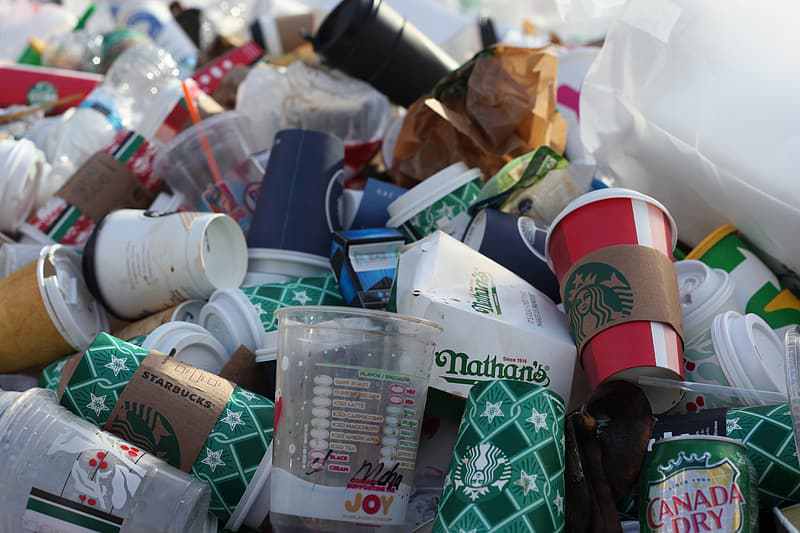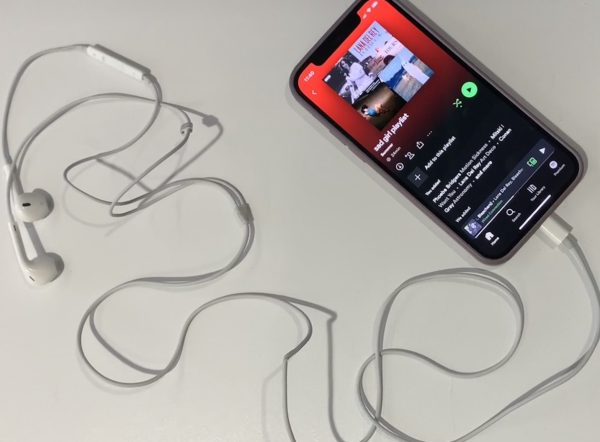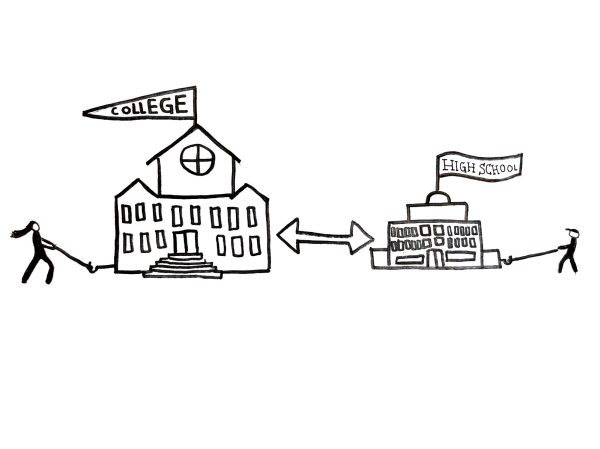COVID-19 and To-Go Containers
Can we still be mindful of our waste in a time of crisis?
In light of COVID-19, the demand for single-use plastics and other disposable goods have increased due to restrictions caused by efforts to halt the spread of the virus. In addition, coffee shops and restaurants have turned to take-out and to-go orders to stay afloat. I work in a coffee shop and before COVID-19 hit, the majority of our sales were to-stay items. Customers had the option to bring their reusable to-go cups and the amount of waste from to-go orders was much less. Many coffee shops also had zero-waste options through companies such as Vessel, which provides customers with a free stainless steel cup that they could check out, get their drink in, and then return. Now, customers only have access to single-use to-go containers.
More waste comes with running a business during a pandemic. To make food and drinks safe for customers, single-use containers are used to avoid contamination. Employees wear gloves that have to be changed many times throughout a shift or they have to wash their hands after every interaction with a customer. Employees wear mandated masks. Many of the masks provided by businesses to their employees are disposable masks, which have to be discarded after each use. The areas that customers come in contact with have to be sanitized frequently, and so paper towels and cleaning supplies contribute to even more waste.
Here in Boulder, many of our restaurants and coffee shops use compostable to-go containers. As part of the City of Boulder’s zero waste initiative, they organized a grant of up to $1,000 for compostable and recyclable take-out products to incentivize restaurants who don’t currently use these items. You might be wondering: if the to-go containers we use are compostable, should we actually be worried about the waste? Yes! According to California’s ecology center, compostable plastics are only better if they make it to a facility that can deal with them correctly. These materials cannot be composted in an at-home compost, and many commercial composting facilities cannot get them to degrade due to a need for extremely high temperatures and humidity to break them down. Still, compostable take-out containers are the best option as long as you are properly disposing of them.
Being mindful of our waste is a lot more complicated than just not eating out or not using single-use items in a pandemic. We cannot avoid the single-use items that help halt the spread of COVID-19. What we can do during these times of the pandemic and climate crisis, is notice what is going on around us and to start conversations around climate change and the excessive use of plastics and single use-items in general. There isn’t a real good solution to the increase in waste produced as a byproduct of the pandemic, but it is still important to recognize it so we can confront why it is happening. Single-use items didn’t just become a problem because of the pandemic; COVID-19 only highlights this issue. Minimizing the number of items that go into the landfill has always been vital, and during this pandemic, we must think about it even more. We can still be mindful of what we contribute to the landfill. You control who you support and what you buy, so we can still be conscious by going to restaurants and coffee shops less. Going to places that use compostable to-go items, bringing reusable silverware when you get take-out to avoid the use of plastic utensils, wearing a reusable cloth mask, etcetera all help lessen the environmental poll of this pandemic. In this time, I encourage you to consume consciously and start conversions about climate change and the increased waste caused by the pandemic.

Aurora is a senior at Boulder High School this year. She is very passionate about social and environmental justice issues and joined The Owl as a way to find a voice for that type of activism. She is very interested in journalism as a prospective career choice. Aurora hopes to bring new perspectives to the Boulder High community and help to start difficult conversations. Aurora is also a member of NAHS, and you can find her doing various forms of art such as pottery, drawing, and painting. In her free time, you can find Aurora in a thrift store buying even more clothing to add to her overflowing closets (she has 2), working at your local coffee shop, and skateboarding (mostly falling). As a creative...






